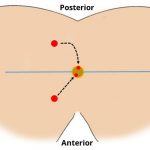Gastrointestinal Fistula treatment by laser in Middle East – Iran
(Cost: 400$ up to 2000$ depends on depth of illness)
You can come to us for 1 day treatment by laser fistula middle east in Iran – Tehran. For more information you can call us +982122361071 or Contact Us form.
What Is a Gastrointestinal Fistula?
A gastrointestinal fistula (GIF) is an abnormal opening in your digestive tract that allows gastric fluids to seep through the lining of your stomach or intestines. This can result in infection when it leaks into your skin or other organs.
GIF most commonly occurs after intra-abdominal surgery, which is surgery inside your abdomen. People with chronic digestive problems also have a high risk of developing a fistula.
Types of GIFs
There are four main types of GIFs:
Intestinal Fistula
In an intestinal fistula, gastric fluid leaks from one part of the intestine to the other where the folds touch. This is also known as a “gut-to-gut” fistula.
Extraintestinal Fistula
This type of fistula occurs when gastric fluid leaks from your intestine to your other organs, such as your bladder, lungs, or vascular system.
External Fistula
In an external fistula, gastric fluid leaks through the skin. It’s also known as a “cutaneous fistula.”
Complex Fistula
A complex fistula is one that occurs in more than one organ.
Causes of a GIF
There are several different causes of GIFs. They include:
Surgery Complications
About 85 to 90 percent of GIFs develop after intra-abdominal surgery. You’re more likely to develop a fistula if you have:
- cancer
- radiation treatment to your abdomen
- a bowel obstruction
- surgical suture problems
- incision site problems
- an abscess
- an infection
- a hematoma, which is blood clot under your skin
- a tumor
- malnutrition
Spontaneous GIF Formation
A GIF forms without a known cause in about 15 to 25 percent of cases. This is also called a spontaneous formation.
Inflammatory bowel diseases, such as Crohn’s disease, can cause GIFs. As many as 40 percent of people with Crohn’s disease develop a fistula at some point in their lives. Bowel infections, such as diverticulitis, and vascular insufficiency, or inadequate blood flow, are other causes.
Trauma
Physical trauma, such as gunshot or knife wounds that penetrate the abdomen, can cause a GIF to develop. This is rare.
Symptoms and Complications of a GIF
Your symptoms will be different depending on if you have an internal or external fistula.
External fistulas cause discharge through the skin. They’re accompanied by other symptoms, including:
- abdominal pain
- painful bowel obstruction
- fever
- elevated white blood cell count
People who have internal fistulas may experience:
- diarrhea
- rectal bleeding
- a bloodstream infection or sepsis
- poor absorption of nutrients and weight loss
- dehydration
- worsening of the underlying disease
The most serious complication of GIF is sepsis, a medical emergency in which the body has a severe response to bacteria. This condition may lead to dangerously low blood pressure, organ damage, and death.
When to See the Doctor
Contact your doctor if you experience any of these symptoms after surgery:
- a significant change in your bowel habits
- severe diarrhea
- fluid leakage from an opening in your abdomen or near your anus
- abdominal pain
Testing and Diagnosis
Your doctor will first review your medical and surgical history and assess your current symptoms. They might run several blood tests to help diagnose a GIF.
These blood tests will often assess your serum electrolytes and nutritional status, which is a measure of your levels of albumin and pre-albumin. These are both proteins that play an important role in wound healing.
If the fistula is external, the discharge may be sent to a laboratory for analysis. A fistulogram may be done by injecting contrast dye into the opening in your skin and taking X-rays.
Finding internal fistulas can be more difficult. Your doctor may run these tests:
- An upper and lower endoscopy involves the use of a thin, flexible tube with a camera attached to view possible problems in your digestive or gastrointestinal tract. The camera is called an endoscope.
- Upper and lower intestinal radiography with contrast medium may be used. This can include a barium swallow if your doctor thinks you might have a stomach or intestinal fistula. A barium enema may be used if your doctor thinks you have a colon fistula.
- An ultrasound or CT scan can be used to find intestinal fistula or abscessed areas.
- A fistulogram involves injecting a contrast dye into the opening of your skin in an external fistula and then taking X-ray images.
For a fistula involving the major ducts of your liver or pancreas, a special imaging test called a magnetic resonance cholangiopancreatography (MRCP) may be used.
Treatment of a GIF
Your doctor will do a thorough assessment of your fistula to determine the likelihood of it closing on its own.
Fistulas are classified based on how much gastric fluid is seeping through the opening. Low output fistulas produce less than 200 milliliters of gastric fluid per day. High output fistulas produce about 500 milliliters per day.
Some types of fistulas close on their own when:
- your infection is controlled
- your body is absorbing enough nutrients
- your overall health is good
- only a small amount of gastric fluid is coming through the opening
Your treatment will focus on keeping you well-nourished and preventing wound infection if your doctor thinks your fistula may close on its own.
Treatments may include:
- replenishing your fluids
- correcting your blood serum electrolytes
- normalizing an acid and base imbalance
- reducing the fluid output from your fistula
- controlling infection and guarding against sepsis
- protecting your skin and providing ongoing wound care
GIF treatment can take weeks or even months. Your doctor may recommend surgically closing your fistula if you haven’t improved after three to six months of treatment.
Long-Term Outlook
Fistulas close on their own about 25 percent of the time without surgery in people who are otherwise healthy and when smaller amounts of gastric fluid are being produced.
GIFs most often develop after abdominal surgery or as a result of chronic digestive disorders. Talk to your doctor about your risks and how to spot symptoms of a developing fistula.
Laser treatment for gastrointestinal fistula
You can find one of the best treatment for this illness in our clinic. Our clinic can help you to treat your illness with Laser treatment laser fistula. It doesn’t have any pain and you can get your health just one day after laser surgery. Also laser surgery doesn’t have any bleeding.
You can come to our clinic (LASER SHAFAA) for A day treatment by laser fistula middle east in Iran – Tehran. For more information you can call us +982122361071 or Contact Us form.
In our clinic we have man and woman physician (doctor) for helping your peace.
Finding a good doctor for gastrointestinal fistula in Middle East
Looking for doctors with the most experience treating anal fissures? Use our laser clinic with best physicians. You can find the most experienced doctors, filtered by our insurance. You can also book your appointment for free.
For booking your appointment click here
call us +982122361071














